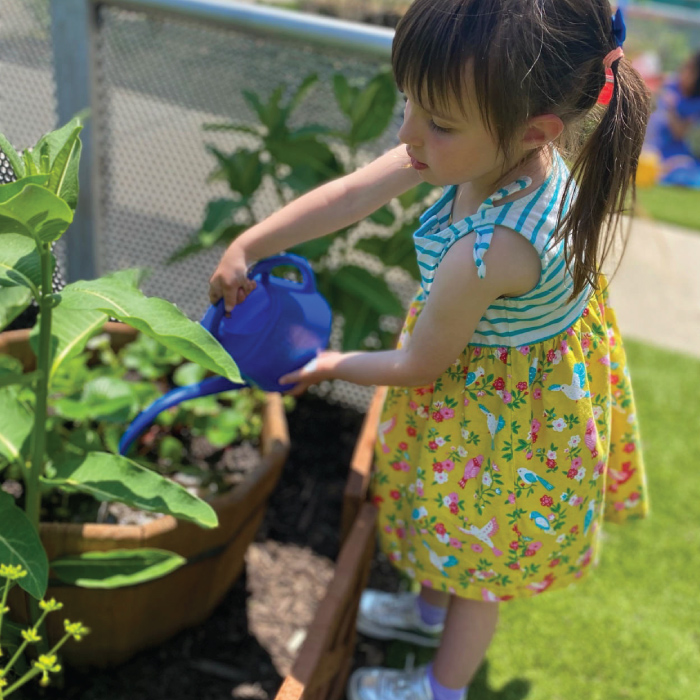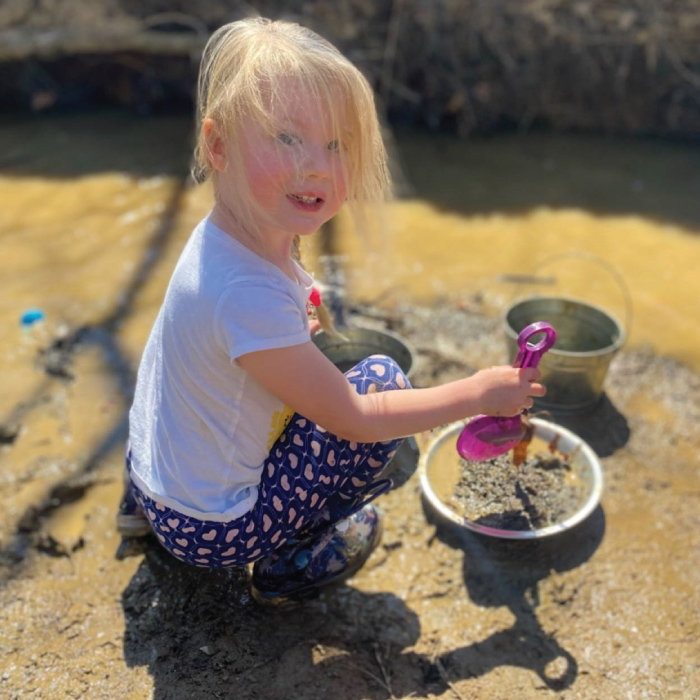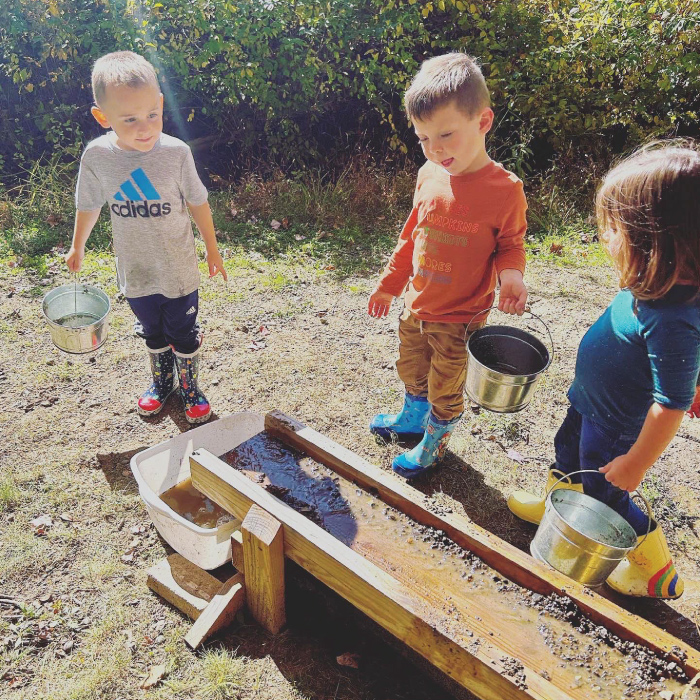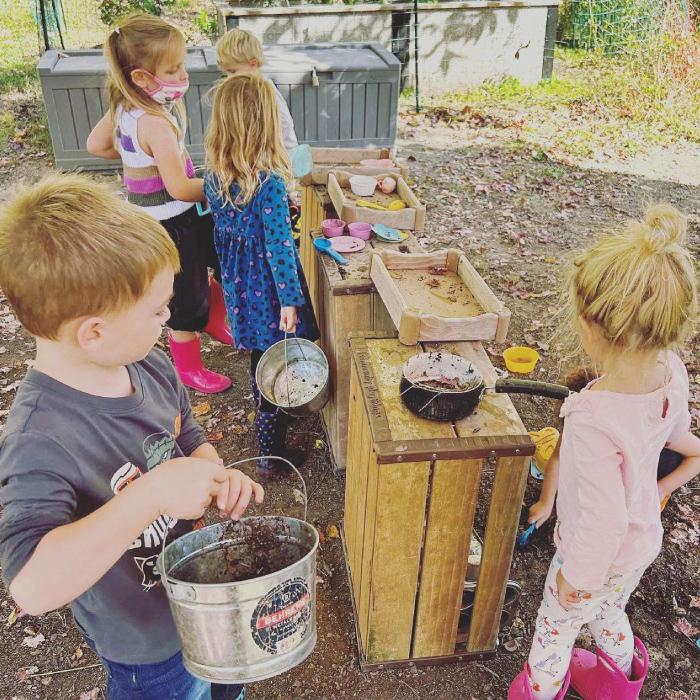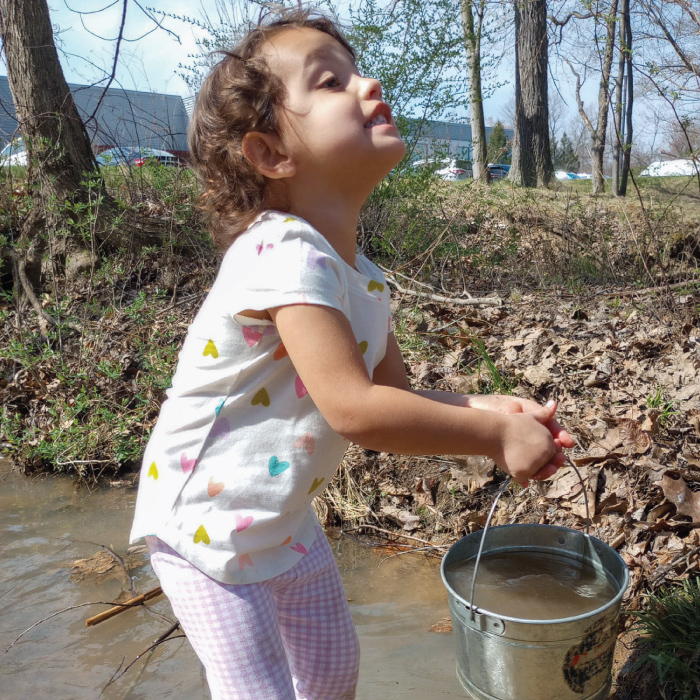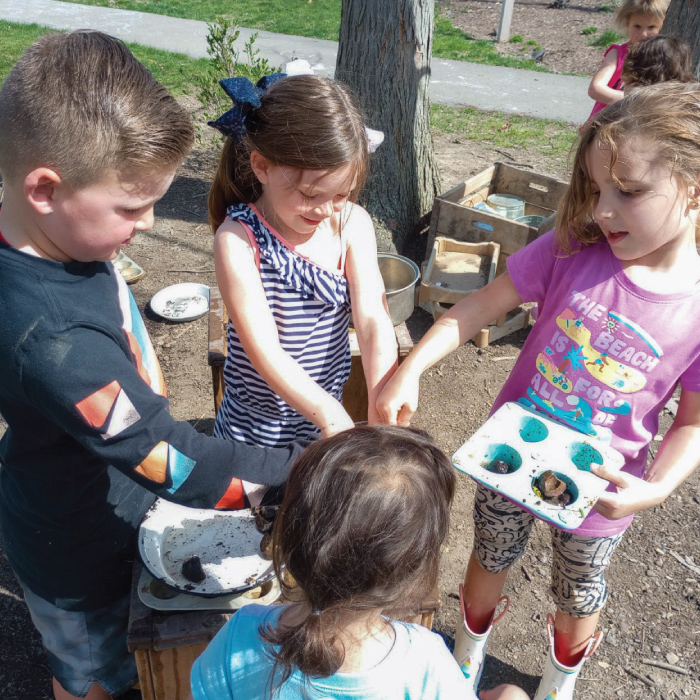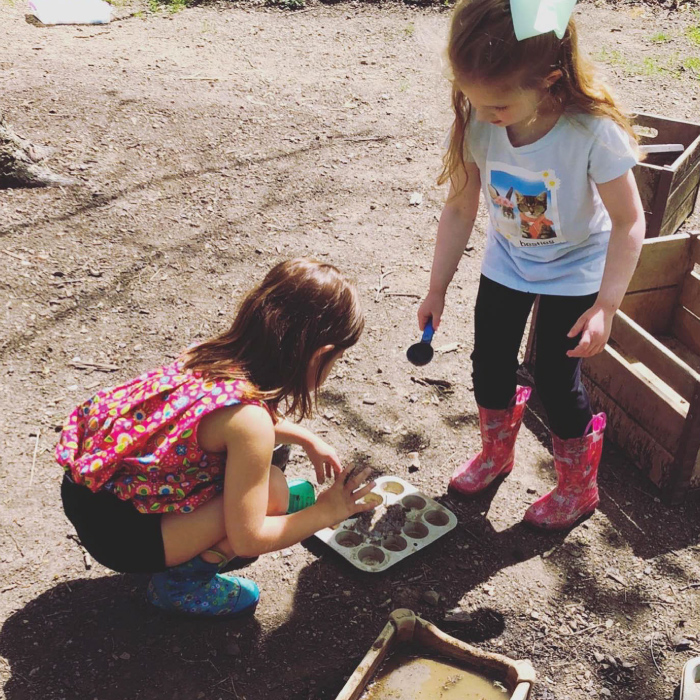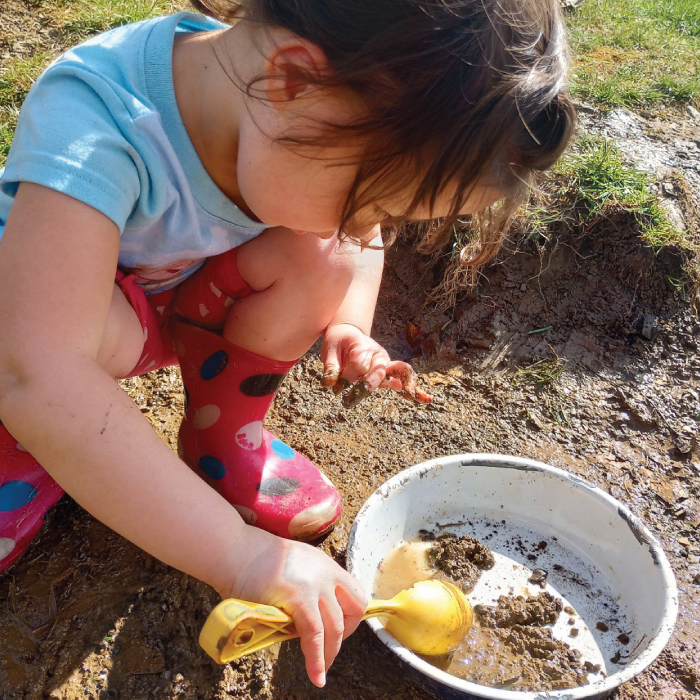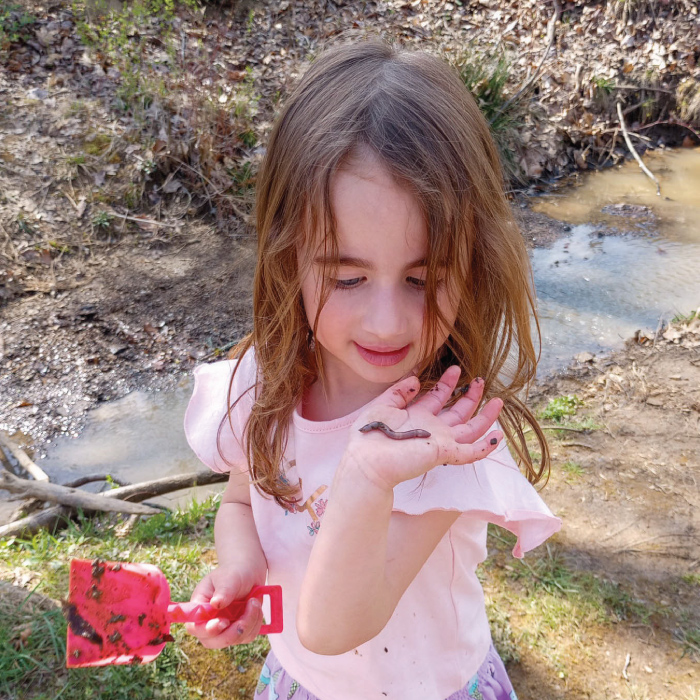This northern Italian philosophy believes that children are capable of guiding their own learning through their innate curiosity in the world around them. In-depth project work emerges as teachers facilitate what children choose to explore: puddles, shadows, bugs, etc. Teachers bring materials into project work that promote math, literacy, science, and social studies. For example, if children show an interest in the planets, the teachers might have the children create a 3D solar system employing measurement and writing to label each planet. Each child learns content at their own pace through an emergent curriculum. Children gain a deeper relationship to their local and world-wide community by exploring nature, cultures, and real-life experiences. Children model what they have learned through art, drama, music, storytelling and more. Varied styles of presentations instill a deeper connection and retention of learning than work sheets or tasks focusing on rote memory. This style of learning is collaborative, requiring children to work together to develop and follow through with elaborate plans.
Montessori education focuses on self-directed activities, hands-on learning, and collaborative play. Materials in the classroom are organized and displayed beautifully to inspire children to manipulate and explore. Children maximize their potential by learning at different paces as teachers pay close attention to the development of each child to ensure they are appropriately challenged. Hands-on, self-directed activities challenge children to think creatively, cultivating the mentality of a do-er rather than a follower. Life-skills such as cooking, sewing, and cleaning are developed throughout the school year.
Grounded in research, HighScope education relies on teachers supporting children as they independently make decisions, develop academic skills, and grow socially and emotionally. Children work together in a community to learn naturally through play. Teachers challenge children to explain the how and why of their choices, create in-depth plans, communicate clearly with peers and adults, and reflect on their decisions. Children learn to be self-aware and in control of their emotions and decision-making.
Students work on a project over an extended period of time – from a week up to a semester – that engages them in solving a real-world problem or answering a complex question. They demonstrate their knowledge and skills by creating a product or presentation.
As a result, students develop deep content knowledge as well as critical thinking, collaboration, creativity, and communication skills. Project Based Learning unleashes a contagious, creative energy among students and teachers.

